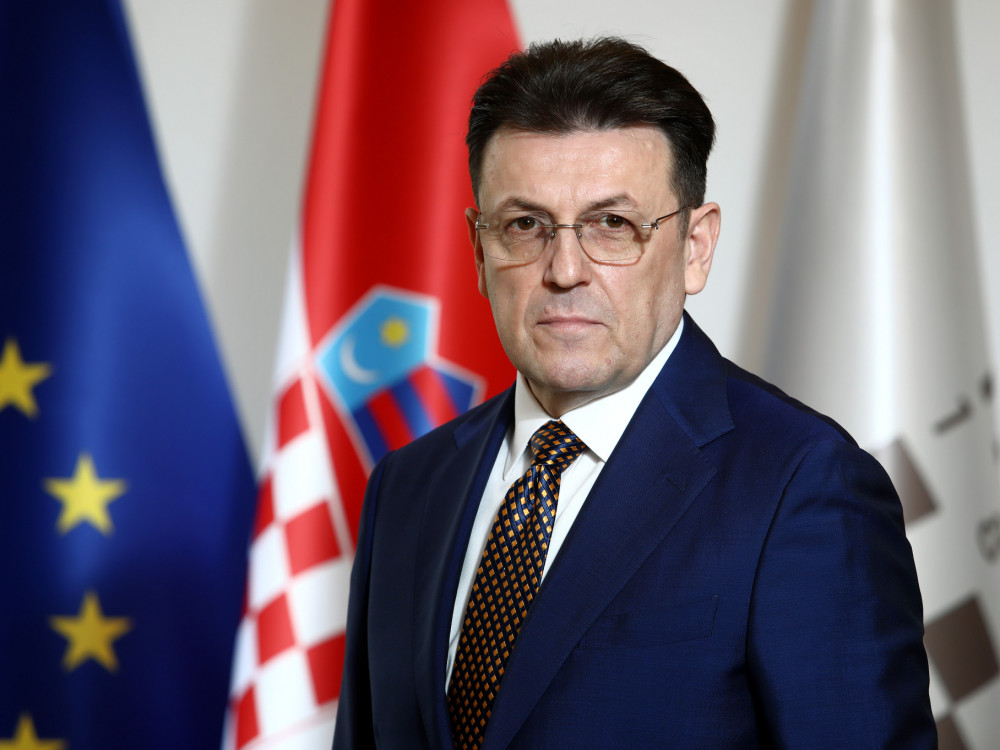A robust economic growth and the post-pandemic recovery of the Croatian economy, one of the EU's fastest growing economies today, have placed the Croatian society before a quite unfamiliar and unexplored societal challenge – the issue of labour availability and migration. The tourism and construction sectors were among the first to resort to foreign workforce, followed by trade, transport, logistics, and other service industries. In a great measure, Croatia has been filling the gaps in its labour force by attracting workers from the former Yugoslav republics. However, increasing labour shortages in key European economies, along with adverse demographic trends, have compelled Croatia to seek labour force elsewhere outside the European continent.
The first migratory surge of foreign workers began a few years ago and currently shows no tendency to decline. Thereby, in the first 10 months of 2024, around 150 thousand work permits were granted, a trend that is expected to continue. Despite the fact that nationals of the countries of the region still account for the largest share of foreign workers, much of the attention has been focused on those workers from geographically distant countries, such as Nepal, Bangladesh, and the Philippines. These are in larger part low-skilled workers, who intend either to return to their countries of origin or move on to other EU countries, in search of an even better economic status. The Croatian public have hot to know foreign workers from remote countries in the first place as platform workers, delivery workers, drivers, and service industry workers in jobs attracting little interest among the domicile population.
As a result, for the first time in recent history, Croatia has been faced with a completely new challenge – as a traditionally immigrant country, we have become an immigrant destination. This raises the key question of what workforce we need, and how to plan further economic development. It is also necessary to dispel the two most common myths; the one that foreign workers are cheap labour, and that they undercut the price of labour. From the point of view of employers, recruiting a foreign worker to work is incomparably more expensive and more complex than employing a national worker. From complex procedures for obtaining work permits, whose validity has been extended to three years by the recent amendments to the Foreigners Act, to language and cultural barriers hindering the recruitment of foreign workers. On the other hand, there is also the issue of labour retention, high turnover, and redeployment of new employees that increase expenditures even more and hamper the conduct of business. The argument that foreign workers undercut the price of labour is also untrue, as foreign workers should not be paid less than Croatian nationals occupying comparable positions. There are also numerous other aspects, such as accommodation, health insurance, and social integration that make importing foreign workforce more expensive and difficult. Nonetheless, Croatia, just as other European economies, currently has limited options: if we want to ensure economic growth, we need an available and qualified workforce.
It is therefore important to define what we, as an economy and society at large, can do to ease our reliance on foreign labour, ensure smooth economic growth, and prevent possible social imbalances? The answer requires an integrated approach and the adoption of a national consensus regarding the future development of Croatia. The Croatian Chamber of Economy (CCE) has been continually and actively participating in diverse activities and initiatives in the field of labour legislation, integration policy, and international promotion of the Croatian labour market. In doing so, the CCE stresses the need to systematically bring together demography and the labour market, modernise the education system matching the needs of the labour market, predictability and flexibility of the regulatory framework enabling employers to adapt more easily to the changing market realities, and ultimately, the adoption of an immigration and integration policy.
With better cooperation within the economic sector and the implementation of targeted immigration policies, Croatia can also attract a certain number of Croatian expatriates and their descendants. This process has already begun, and it is the result of the rise in living standards in Croatia, improved business conditions, and the quality of life in Croatia in general, as compared to nowadays popular emigrant destinations witnessing stagnation of economic activities, downward trend of living standards, and social instability.
Reaching the average of 80% of the level of development of the European Union could be a big opportunity for Croatia, as looking historically, our position has never been better, with rising standards, integration in the eurozone, the highest credit rating ever, and a solid economy with stable prospects could make Croatia an attractive work destination. The focus should be on Croatian citizens who have emigrated in the last ten years, families and young people who will remain in the employment sphere for a long time, as well as the descendants of Croatian expatriates, especially from Latin American countries, where the mix of economic and political instabilities with the potential closing-off of the American labour market makes Croatia even more attractive as an immigration destination.
Targeted immigration should also focus on attracting highly educated foreign nationals, experts in various fields, from medicine to technical sciences to IT, where Croatia records a deficit of highly qualified workforce. Finally, it is important to strongly integrate the educational system by carrying out teaching programmes in English and study programmes that also include incentives – bursaries and scholarships for learning Croatian. This would also reduce the pressure on higher education institutions which, due to negative demographic trends, are already enrolling less students.
The last, but equally important measure is the activation of long-term unemployed persons, especially in the segment of young people who do not express strong interest in joining the labour market. Positive results can be achieved by measures that reduce the possibility of undeclared work and shadow economy, continuing education programmes and lifelong learning, as well as tax policy measures that discourage the rent-seeking economy but encourage entrepreneurship.
By applying short-term immigration and long-term demographic measures, Croatia could lay the groundwork for further economic growth and reverse negative demographic trends. We have been growing for the 15th quarter in a row, and the GDP has doubled in 9 years, which provides us a solid foundation to establish ourselves as a desirable work and life destination ensuring an optimal ratio of quality of life, standards, and safety. In doing so, the CCE will continue to play an active role and be a constructive partner to the economy, the legislative and the executive branches, so as to implement complex but necessary measures and public policies that can ensure long-term economic progress and demographic growth of the Republic of Croatia.













.png)